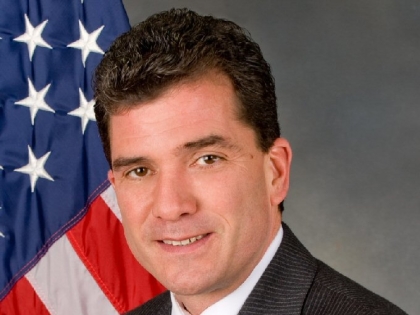A plan to end or sharply cut state aid in two years to Roswell Park Cancer Institute has been tentatively reshaped to give more time for the hospital to enter into moneymaking arrangements to improve its fiscal health.
The deal, expected to be part of the 2012 state budget coming together this week at the Capitol, would remove a deadline for Roswell Park to become “operationally independent” from the state by March 2014.
Instead, according to a provision of the health care portion of the state budget, Roswell Park would have to come up with a plan to enter into new joint business dealings with other health, academic and for-profit ventures by January 2014. Roswell Park would not have to implement the plan by then, and there is no specific cut-off of state aid as Gov. Andrew M. Cuomo originally proposed.
The Roswell Park deal is one of dozens that emerged Monday as the administration and lawmakers wrestled over final elements of a $132.5 billion state spending plan.
“This was a collaboration by the governor, Roswell and lawmakers that benefits Roswell and the state and protects Roswell and its patient and research work into the future,” said Sen. Mark Grisanti, a Buffalo Republican. The governor’s office did not comment.
Three new budget bills will authorize everything from a new state agency to oversee all aspects of gambling in New York to a five-member panel charged with divvying up money from unused power from the Niagara Power Project.
In one measure, the Legislature accepted Cuomo’s bid to reduce some of State Comptroller Thomas DiNapoli’s oversight to pre-audit some state contracts. The deal comes as DiNapoli’s office said auditors in November used the pre-audit process to halt a state contract with a Brooklyn firm alleged to be tied to the Gambino crime family.
“It is a mistake to erode this independent oversight,” DiNapoli said of the deal by lawmakers and Cuomo affecting centralized procurement contracts by the state Office of General Services. “Eliminating review of contracts potentially worth over billions of dollars undermines the accountability and transparency New York taxpayers deserve. Checks and balances are essential to fiscal responsibility.”
The governor has said DiNapoli can still halt contracts and that the new plan will streamline the contracting process and save taxpayers money.
Lawmakers and Cuomo are desperately trying to publicly let the budget bills “age,” as required by the Constitution, for three days before taking them up on the floor. Normally, budget bills are pushed through with a “message of necessity” by the governor, a process that gives the public, or legislators, no time to study the provisions. The transparency approach this time comes after Cuomo and lawmakers were roundly criticized for last week’s middle-of-the-night dealmaking over several major policy matters.
The creation of the Western New York Power Proceeds Allocation Board is designed to get economic development funding flowing to local groups. At issue is unused power designated to certain area companies. Several years ago, lawmakers earmarked proceeds from that unused power into a special pot for local economic development instead of, eventually, the state’s general fund.
“This is significant because it provides funding for projects just in Western New York,” said Sen. George Maziarz, a Newfane Republican and chairman of the Senate Energy Committee.
He said funding for the program fluctuates based on wholesale energy prices but should end up being between $3 million and $10 million annually. He said the New York Power Authority has about $12 million for the funding pot that has been held in escrow the past couple of years while the allocation board was created.
The commission’s five members would serve for five-year terms. Three of the board members, two of whom will be recommended by the heads of the Senate and Assembly, must live within 30 miles of the Niagara Power Project. The governor will designate the chairman.
Eligible grant recipients, including private companies and not-for-profit groups, must also be located within 30 miles of the plant in Lewiston and must show that funding “will support the growth of business in the state.” Funding can go to capital investments in buildings, research and development, tourism, transportation projects or for land acquisition. Funding may not be used for lobbying, public interest advocacy, legal fees or certain businesses, such as sports venues, hotels or gambling ventures.
Another provision creates the New York Gaming Commission, an entity with broad powers to regulate all forms of gambling in the state, including horse racing, racetrack-based casinos, Indian casinos and charitable gambling. It merges responsibilities now held by the state Racing and Wagering Board and the Division of Lottery.
The panel would also regulate up to seven new casinos as proposed by Cuomo, if the Legislature approves second passage next year of a constitutional amendment. Voters would then have to approve the gambling expansion; a statewide referendum could not occur until at least November 2013.
While some areas of the budget have been made public, a number of key areas are still being negotiated. A health bill has yet to emerge, and lawmakers have not yet seen how much the state’s 700 public school districts will get in state aid; in all, $800 million is being added to schools for the coming year, with $200 million from a $250 million pot Cuomo had originally sought to set aside for grants for districts improving student performance.
Ironic that those two areas were causing the most angst near the end since officials for months have said this year’s budget process would go much easier because an overall spending level for those two areas of the budget was resolved in 2011. Medicaid and aid to public schools are set to rise 4 percent apiece this year, all sides agree.
In an interview, Assembly Speaker Sheldon Silver said the sides have not yet settled how aid to 700 school districts would get distributed.
He said a “couple of issues” remain in the health care portions of the budget. One is creation of a health exchange program in New York to abide by new health insurance mandates; the exchanges would be in charge of administering the federal program and getting insurance into the hands of uninsured New Yorkers. Later in the night, Senate Majority Leader Dean Skelos said the health exchanges will not be in the budget legislation.
“Health exchange is clearly an issue. We want to get federal money. So far, the Senate is resisting that,” Silver said. Asked if it was a political issue for the GOP, Silver said, “I have no idea why they’re doing it. You’ll have to ask them.”
Senate Republicans said there are still unanswered questions over potential state costs of the exchanges. Cuomo looks to start the exchange program administratively if lawmakers don’t act.
As for timing of the budget’s passage, Silver said he expects its enactment “by the weekend,” while Skelos said he thinks it will be done Thursday.
http://www.buffalonews.com/city/capital-connection/albany/article781357.ece

